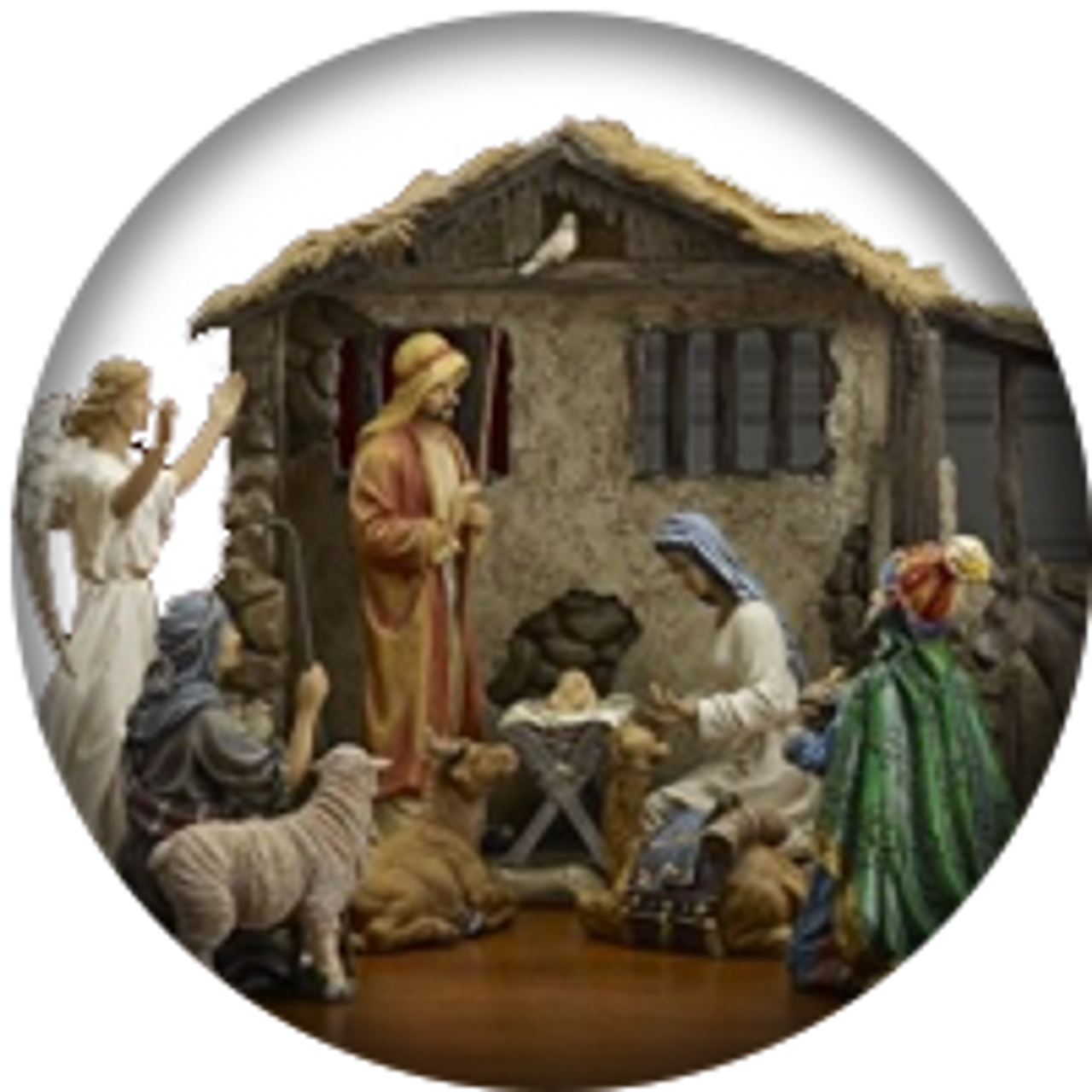DIVINE MERCY SUNDAY series, Part II: MERCIFUL LOVE AT THE HEART OF THE TRINITY
Kathy Boh on 23rd Apr 2020
DIVINE MERCY SUNDAY series, Part II:
MERCIFUL LOVE
AT THE HEART OF THE TRINITY
Seeing it. Receiving it. Walking in it.
“Father, forgive them,
for they do not know what they are doing.”
LOVING MERCY
[Luke 23:34] Remember that much-quoted line? Jesus spoke those words after an evening of tortuous agony, and night of continuous and horrific pain. It was soon after He cruelly had each limb roughly nailed to a cross, to hang and bleed and suffer until He died—but this forgiveness with tremendous understanding and mercy was on His mind and on His lips—while still crucified on that cross. To connect to that great mercy, our response needs to be an admission of both our guilt and of His payment of the price for us—the price that each of us deserved to pay.
“Jesus Christ is the face of the Father’s mercy… Mercy has become living and visible in Jesus of Nazareth, reaching its culmination in him. The Father, ‘rich in mercy’ (Eph 2;4) … revealed his name to Moses as ‘a God merciful and gracious, slow to anger, and abounding in steadfast love and faithfulness.”(Exo 34:6) 1
“Jonah was reluctant to offer mercy to Israel’s enemy. He did not want the inhabitants of that great city, which had invaded his homeland, to be forgiven. Nineveh was a city so large that it mimicked the whole world and all the world’s sins..” 2
“With our eyes fixed on Jesus and his merciful gaze, we experience the love of the Most Holy Trinity. The mission Jesus received from the Father was that of revealing the mystery of divine love in its fullness. ‘God is love’ (I Jn 4:8-16)… This love has now been made visible and tangible in Jesus’ entire life. His person is nothing but love, a love given gratuitously… Everything in him speaks of mercy. Nothing in him is devoid of compassion…” 3
Jesus came to preach to Jerusalem God’s mercy, but that mercy did not endear him to those lording it over their own people.
Jesus would become like Jonah—cast out of the city and entombed for three days as Jonah was in the whale. The gospel warns us that we can disrespect the forgiveness being offered to us in the life and death of Jesus, but just like Jonah, we cannot hide. God’s tender mercy will find us.” 4
SHARING GOD’S MERCY
So, just how do we respond to this magnificent mercy? Personally, inwardly, in our relationship with God? And personally, outwardly, in our view and relationships with others?
“Pope Benedict encourages us to ‘never despair of God’s mercy,’ because the love and mercy of God will always win out in the end…” 5
“[At the] ‘first World Apostolic Congress on Divine Mercy’… [Pope Benedict] tells us to ‘go forth and be witnesses of God’s mercy,’ not our own human mercy…” for “it is God’s mercy and not our own, which is a ‘source of hope for every person and for the whole world.’ Here, Pope Benedict is not simply splitting hairs.
He is clearly placing the emphasis on God’s mercy towards us in our need, as the starting point.”6
In keeping with this “starting point”, Pope Francis believes that “In our parishes, communities, associations and movements, in a word,wherever there are Christians, everyone should find an oasis of mercy…” 7
BUILDING AN “OASIS” OF GOD’S MERCY
—A SAFE PLACE TO BE
An oasis is defined as a “pleasant or restful place to be… surrounded by something unpleasant” [Mirriam-Webster online dictionary]. As we find that we can depend less and less on the world around us to be warm, friendly and forgiving, we—as God’s own people—need to be even more aware of our call to kindness and mercy.
“Jesus affirms that mercy is not only an action of the Father, it becomes a criterion for ascertaining who his true children are." 8
Choosing to forgive and show mercy is simply to put our “being offended” (including both the offense and the offender) in God’s hands, for God is both just and merciful. Then we—as the Our Father tells us—can receive forgiveness for our own offenses. Otherwise, we are forgiven “our trespasses as we forgive those who trespass against us”. If it is just “as we forgive”, what can we expect when we do not forgive?
Forgiving someone does not mean that we approve of what happened. The other person may not even be sorry. But we can still put them in God’s hands. We may have to set limits in that relationship, or make some clear statements to the person—every situation is different, requiring its own wisdom. As we act in love, we go first to God, and then act according to His wisdom. We can see how other advice and practical, true wisdom “dovetails” with His—including wise counsel, as necessary.
“In short, we are called to show mercy because mercy has first been shown to us.Pardoning offences becomes the clearest expression of merciful love, and for us Christians, it is an imperative from which we cannot excuse ourselves. To let go of anger, wrath, violence, and revenge are necessary conditions to living joyfully…” 8
There is much writing available on the “works of mercy” and other aspects of being an instrument of mercy in this needy world. But there are some other vital moves that we need to make if we are to see mercy prosper among us. We need to, in a sense, “weed our gardens” before expecting to see mercy richly grow.
As we seek to build a beautiful fabric of merciful love all around us, we need to also recognize some “destroyers” of mercy and love… that act like worms… like poison… like stink bombs—undermining our loving efforts and determined acts of kindness and mercy.
MERCY: WEEDING THE GARDEN
Pope Francis has mentioned some things specifically, and spoken passionately about envy and jealousy, slander and gossip. (Pope Francis has written several meditations, sermons, and writings on these subjects. Some earlier ones from 2013 and 2014, include: “In the sure hands of God”; “Slander kills”; “The threat of gossip”; “Hearts free of envy and jealousy”; “The temptation to gossip about others”; “Unmasking the hidden idols”; “A gentle, humble light full of love”…) 9
Sometimes we need to understand just how destructive envy, gossip and slander can be. We can get used to some things that—although some like to see them as lesser sins—they can, in their destructive power, be like termites destroying the supports of a home or a group or a relationship or a church body… or a cancer that quietly destroys a body... or a debilitating physical condition that greatly limits our activity, ability, and function. Many of us have seen groups, families, fellowships, neighborhoods, friendships and other relationships deeply damaged or destroyed by slander and gossip.
It may be helpful to get specific here, and clarify terms regarding slander and gossip. We will give some definitions.
Putting some dictionary definitions together,
Gossip, itself, can be described as a “rumor or report of an intimate nature” regarding “personal or sensational facts”. So, it involves telling sensitive or private (potentially false) information without rightful cause or respect for privacy.
Slander [according to the Mirriam-Webster online dictionary] is described as “false charges that defame or damage another’s reputation”; “a false and defamatory oral statement about another”. So, slander has an emphasis on a “false” report. But what if it is true? How do we handle that?
We acknowledge that there are times when—for the protection of a group or those in our care—unpleasant truth needs to be revealed and told to another/others when people need to be protected from harm (physical, mental, emotional, spiritual, or situational) destruction or falsehoods. Mercy also exists for those who have been harmed. For example, doctors and nurses care for the sick and injured, and we all notice and appreciate loving, kind and merciful care. Rough care; ignoring injury; further damaging those who come for help would not easily be tolerated.
As true as this is in medical care, it is also true in regard to our spiritual care-givers. And whether we are speaking of medical or spiritual care, there are appropriate and loving ways to face, report and deal with both while truly seeking what is right and good and true. At times, not to do so would be quite harmful. Our loving and merciful God knows the difference and searches our hearts.
Pope Francis goes back to “gossip”, then slander. “Gossip divides communities. It destroys communities.". "It is the devil’s weapon. How many beautiful Christian communities have we seen go well but then the worm of jealousy and envy entered [one or] some of its members and sadness comes and they take offence." 10
“[Pope Francis] said, “We are sinners: all of us. We have sinned …But…”
"But slander is something else. It is a sin but also something more, for it wants to destroy God’s work and is spawned by something very nasty…by hatred. And the person who generates hatred is Satan." 11
As we have mentioned, Pope Francis repeatedly mentions “envy… gossip… slander…"
"One could call it a very unholy threesome.
It was envy that startedthe devil off on his unrelenting path of destruction." 12
Satan was jealous of mankind... and Cain was jealous and killed Abel, his brother, in the Garden of Eden...
Pope Francis explained, “The devil could not endure that man be superior to him, that man and woman be made in the image and likeness of God… God made us and he is our Father. He made us beautiful as he is beautiful, more beautiful than the angels, greater than the angels. The devil envied the greatness and the beauty of God’s rational creature, and through the devil’s envy, sin entered the world… This is why he made war on them and laid before them a road that leads to death.” 12
“A person who is under the influence of envy and jealousy kills. John the Apostle tells us: ‘whoever hates his brother is a murderer’. And someone who is envious, who is jealous, begins to hate his brother [31]… Let us pray… that the seed of jealousy not be sown among us… that envy have no place in our hearts…” 13
“… [When] Satan [gets] involved… what seemed at first like a calm trickle of water turn[s] into a flood of water. In this way, the temptation grows, infect others, and justifies itself…” 14
“A community, a family is destroyed by this envy that the devil teaches in the heart and causes one to speak ill of the other.”15
To repeat part: “…Slander is something else. It is a sin but also something more, for it wants to destroy God’s work and is spawned by something very nasty…by hatred. And the person who generates hatred is Satan. Falsehood and slander go hand in hand.” 16
Bringing up “falsehood” helps clarify a touchy subject.
God’s mercy is usually given when a person or a community turns from “wrong” to “right”—acknowledging the truth, humbly. (Biblically, there is a varying time-span as to when negative consequences fell for those who refused to repent. Sometimes it was years; sometimes, a generation; sometimes that very night, as in the “handwriting on the wall” in Babylon, when King Belshazzar, son of King Nebuchadnezzar, drank from the Jerusalem temple’s sacred vessels in a drunken banquet, “praising the gods of silver and gold”—after the Lord had shown his father great mercy and restoration after he had humbly repented and “blessed and glorified the Most High”. [Dan. 4:31-34; 5:1-6, 17-30])
Divine Mercy involves God’s forgiveness and His love. We can look at scriptures that say “I (Jesus) am the Way, the Truth and the Life”… and “God is Love” (as the apostle John wrote) and see that our Loving God is in the process of showing us the Way where we can find Life. And He fills the Bible with messages, demonstrating that a healthy, loving holy life is going to involve Him and be based on His truth. Bible history’s passages and stories evidence God’s people’s rise and fall accordingly. His word does not fail to cover life’s 24/7 topics regarding how to be and what to do in order to live well.
AUTHENTIC FOUNDATION:
SPEAKING AND LIVING THE TRUTH IN LOVE
There are those who can feel guilty reporting a crime, or an incident where someone or a group of people have been truly harmed. This becomes even more difficult when persons of power and authority are abusing their power, position, title, authority and influence. This abuse can manifest in physical ways or in spiritual, intellectual and moral ways. It can become a critical issue when it is God’s own people that are being misled (by falsehood), malformed in Bible and moral truth, or misled in religious doctrines. This issue remained of primary importance to Pope Benedict, even as he served the church and Pope John Paul II as Prefect of the Congregation of the Doctrine of the Faith.
Pope Francis himself (above) spoke of “destroying God’s work”. Partial application was given in his words above. But “God’s work” is a large subject. As we continue to pray for our leaders as God has exhorted us to do, we add hope to our continued prayer for the pope and other church hierarchy. We pray thatthe truth and love of “God’s work” on earth, God’s word in the Bible and of “His [God’s] kingdom come” become manifested in every aspect of Pope Francis’ papacy, his decisions, and his spoken and written words.
There has never been a time when Our Lord’s written and spoken words need to be more heard, valued and lived out—without being disregarded, changed or slandered in any way that violates the truth and the endless love of God. The “world” (and its ways/values/morals) does this continually, but, though we are “in” this world, we are not “of” this world. We in the Church and the Body of Christ across the globe are called to believe and live out God’s sacred word.
The truth is, it hurts Jesus and the Father deeply when their “lambs and sheep” are misled and mis-taught, mistreated and abused—physically, morally, or spiritually. It was Jesus who criticized religious leaders in His day [in Matt 15:6b-9 and Mark 7:7] for
“You have nullified the word of God for the sake of your tradition… well did Isaiah prophesy about you when he said: ‘This people honors me with their lips, but their hearts are far from me; in vain do they worship me, teaching human precepts [the commands of men] as doctrine.” The long line of saints through our history, including the recent (St.) Pope John Paul II, knew the truth of this. Pope Benedict devoted his life to that authentic foundation.
Paul says in Ephesians,
“So Christ himself gave the apostles, the prophets, the evangelists, the pastors and the teachers, to equip his people for works of service, so that the body of Christ may be built up until we all reach unity in the faith and in the knowledge of the Son of God and become mature, attaining to the whole measure of the fullness of Christ.
Then we will no longer be infants, tossed back and forth by the waves, and blown here and there by every wind of teaching and by the cunning and craftiness of people in their deceitful scheming.
Instead, speaking the truth in love, we will grow to become in every respect the mature body of him who is the head, that is, Christ. From him the whole body, joined and held together by every supporting ligament, grows and builds itself up in love, as each part does its work.” [Eph 4:11-16]
Love and truth are bound up in the intrinsic nature of God, Himself—Father, Son and Holy Spirit. Scripture is full of references. “God is love”. “I am the …Truth…” “The Holy Spirit, the spirit of truth, will lead you into all truth…” God’s ‘loving Father-heart’ and Jesus’ Good Shepherd and “mother hen” heart—along with the “Comforter/ Spirit of truth” care deeply how their sheep are tended and fed. We can do no less if—and as—we pray, “Thy kingdom come, Thy will be done on earth as it is in heaven.” We know those words come from Jesus’ particular instruction on how to pray, as He formed the prayer, the “Our Father”.
Pope Francis said, “Jesus warns us that the devil is a ‘liar and the father of lies’ and ‘a murderer from the beginning’. ‘You are of your father the devil, and your will is to do your father’s desires. He was a murderer from the beginning, and has nothing to do with the truth, because there is no truth in him. When he lies, he speaks according to his own nature, for he is a liar and the father of lies.’ (Jn 8:44)” 17
“Pope Francis shows how these lies cause harm to individuals and communities.” He was specifically speaking about slander and gossip. But we know that the devil’s lies are many and varied and all are destructive and misleading. We need to continually seek to discern the truth (by matching it with what God says in His written scriptures and by what moral doctrine and tradition teaches).
Pope Francis continues:
“We are used to gossip, to spreading rumors, and we often transform our communities as well as our family into ‘hell’ where this kind of crime leads to killing one’s brother and sister with one’s tongue is manifest…” The Apostle John (1Jn 3:15) tells us that anyone who hates his brother is a murderer. …” 18
WHAT SPIRIT ARE WE FOLLOWING?
Pope Francis has explained that it is easy to be drawn into the “spirit of the world" instead of being led by the Spirit of God, and into mercy…” 19
“It is the spirit of the world that cunningly entices us to idolatry… It is not enough to say, ‘I believe in one God’. We must ask ourselves how to put this commandment into practice. In fact too often we continue to live as though he were not the one God…” 20
Here Pope Francis is specifically speaking against “idolatry” ( as it says in the first commandment, “I am the Lord your God …You shall not have other gods beside me. You shall not make for yourself an idol… or… bow down before them or serve them.” [Exo 20: 2-5]) As Jesus put it, “Love the Lord you God with all your heart and with all your soul and all your strength and with all your mind…” [Luke 10:27, Mark 12:30]
In the early 20th century and in former generations, we did not hear too much about “false gods”. But as the world becomes less Christ-centered and more multi-cultural-minded and tries to incorporate other religions and new age thought into Christianity, the falsehoods and false gods become a noteworthy issue.
In addition, we in the modern world can make many things an idol—literally anything we place above God, Himself, in what we adore or value or seek after or follow or consider most important to us.
Pope Francis continues.
“[T]he danger of idolatry [is] brought to us with the spirit of the world. And Jesus was quite clear about this… I am sure that none of us stands before a tree to worship it as an idol…”
[blogger’s note: Some primitive cultures still do honor such idols, as in the Amazon. Our call is to follow the first commandment in heart, word, thought, and behavior, “speaking the truth in love”. Because idolatry is real—whether tangible and physical, or whether it marks choices and preferences that are mental, emotional, or priority oriented.]
“But idolatry is subtle; we have our hidden idols and the road through life to arrive at the kingdom of God, to be near it, entails unearthing hidden idols… The road of love for God is a road of love, a road of faithfulness.” (L’O June 12, 2013) 20
(Please see below for further elaborating comments on modern day idolatry in footnote # 21)
“When we do not profess Jesus Christ, we profess the worldliness of the devil, a demonic worldliness…
We can [do] as much as we want, we can build many things, but if we do not profess Jesus Christ, things go wrong. We may become a charitable [organization], but not the Church, the Bride of the Lord. The same thing happens to children on the beach when they build sand castles: everything is swept away, there is no solidity…" (Homily, Sistine Chapel, Mar 14, 2013) 21/22>>22
So, it becomes obvious that there are some diametrically opposed choices we can make. We can be easily blinded to some of those choices, seeing only what is going on in superficial, surface kind of ways.
How, then, DO we build on “solid” ground, and not build “sandcastles”?
FROM THE FATHER, THROUGH THE SON, BY THE HOLY SPIRIT
Let’s look again, for a moment, as if from the beginning, at this “Jesus Christ” that Pope Francis said (earlier in this article, above) we need to profess…
Jesus came to this earth through, for and by God’s mercy. He literally “counted the cost” and released us from the chains of sin and death. Jesus was willing to die a horrible death for us, to pay the price for salvation (and every grace and blessing that comes from that). But that wasn’t enough help for God to give his beloved children.
In continued, great mercy and generosity, He and the Father had planned to send the Holy Spirit to remain with us. “…Now I am going to the one who sent me… But because I told you this, grief has filled your hearts. But I tell the truth, it is better for you that I go. For if I do not go, the Advocate will not come to you. But if I go, I will send him to you.” (Jn.16:5-7)
The Holy Spirit comes to enliven and bring to life the words and the heart, the Spirit and the person of Jesus, Himself. He told us that the Spirit would be a “Comforter” in the midst of the tribulations that Jesus said we would surely face; the Holy Spirit could enable us to manifest Jesus’ overcoming power and the peace that Jesus spoke of in regard to the troubles of this world. (Jn. 16:33)
The Holy Spirit was sent to empower us to know and understand the truth; to pray with and through us when we do not know how to pray; the power to win every battle against the enemy; and more… He enables us to both proclaim and to show the mercy of God.
FINAL THOUGHTS
So, again we ask, as we did at the beginning: Just how do we respond to this magnificent mercy? Personally, inwardly, in our relationship with God, how? And personally, outwardly, in our beliefs, perspectives, behaviors and relationships with others?
Pope Francis says:
"Let us ask the Lord to show us and the world the beauty… and fullness of treating each other with kindness, with respect…
Let us ask for this grace for us all…to show us the beauty and the fullness of this new life, of being born of the Spirit…” 23
Let us recognize the need to ask the Lord for help in showing His mercy. Let us start there. Let us ask for the help of the Holy Spirit in searching out our own hearts and in preparing the groundwork for such loving, mercy-filled kindness.
One way or another, let us go back to Him—Who is so rich in mercy towards us— for both the way and the grace to see and be what we need to be.
We have more coming up in DIVINE MERCY SUNDAY, PART III:
THE DIVINE MERCY THEME IN PAPAL WRITINGS. Join us!
FOOTNOTES
1“Introduction: An Invitation to Mercy, by Pope Francis” from BEAUTIFUL MERCY, by Dynamic Catholic, p. 9
2THE RELUCTANT PROPHET
3“Introduction…”, p. 11
4THE RELUCTANT PROPHET
5POPE BENEDICT’S DIVINE MERCY MANDATE, by David Came, Marian Press, Stockbridge, MA 01263, p. 83
6 Ibid, p. 139
7 “Introduction…”
8 Ibid, p.13
9 WHO IS THE DEVIL? WHAT POPE FRANCIS SAYS, by Rev. Nick Donnelly, pp. 11-14, 31, 42, 43
10 Ibid, p. 31
11 Ibid, p. 14
12 Ibid, p. 13
13 Ibid, pp. 31-32
14 Ibid, p. 12
15 Ibid, p. 14
16 Ibid
17 Ibid
18 Ibid
19 Ibid, pp. 18-22
20 Ibid, pp. 33-34
21 Idolatry
MODERN IDOLATRY
It has been very tempting—particularly in current history— to change or ignore God’s word to try to appeal to our modern times and all its individuality, its confusion, and all the innumerable, self-determined moral codes that we can find. It is more in tune with our times and more convenient to proclaim God to be “out-of-date” and to see His word as “behind the times”, rather than to see ourselves as blindly fitting into our culture’s anti-Christian and un-Christian opinions, values and mores.
It is easier to find fault with God (the triune God of all past, present and future, unending) for His revealed scriptures (as being culturally ancient and inapplicable to our advanced, technological intelligence) than face that our culture is losing its conviction and certainty regarding morality and truth.
The more we follow that path, the more we can become ignorantly unaware, or self-focused, or arrogant in thought, or rebelliously (or misguidedly) independent regarding moral absolutes and the truth that God has revealed and that traditional Christian teaching has long believed, held fast and firmly proclaimed. Jesus answered the centuries old question about the “truth”. “I am the Way the Truth and the Life. No one comes to the Father except through Me.” [Jn 14:6]
It may be too overwhelming to realize that, as a people, we are growing colder regarding love (both love toward others and love toward God). Instead, we are more easily exalting “self” to the detriment of loving God and others the way that Jesus taught. Are we the “frogs in hot water”—water that is being heated to the boiling point without noticing or moving?
Or, in an opposite way, is our “love growing cold”? “…Because of the increase of evildoing, the love of many will grow cold.” [Mt 24:12b] Is our love toward God and others being slowly being frozen? Our times and all of the problems we face can feel overwhelming. We can decide to stay the course and look to the Lord and follow Him—or we can give in to all the negative pressures. God’s people, a needy world, our children and their children, the Church (and God, Himself) await our decision(s), and appreciate our sacrificial choices.
22 WHO IS THE DEVIL? WHAT POPE FRANCIS SAYS, by Rev. Nick Donnelly, p. 19
23 Ibid., p.3
This blog is partially based on one posted by Kathy Boh on 20th Mar 2018










